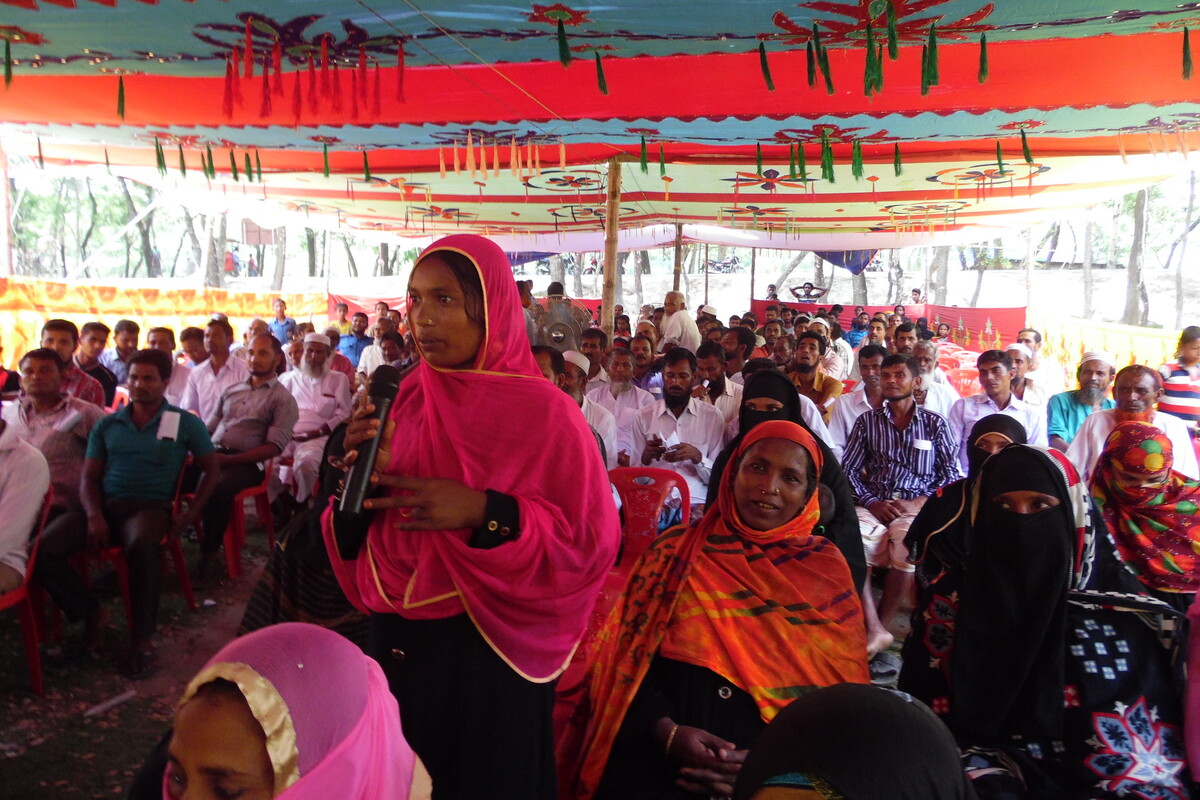Five lessons about mobilising political will to achieve gender equality and inspire partners to engage with high level political leaders
Published on: 15/08/2023

Photo caption: Open budget meeting, Veduria Union, Bangladesh. Photo: IRC / Watershed, 2019
 By Catarina de Albuquerque, SWA CEO. Originally published on the SWA website as "Five ways to achieve gender equality through Head of State engagement", 31 July 2023
By Catarina de Albuquerque, SWA CEO. Originally published on the SWA website as "Five ways to achieve gender equality through Head of State engagement", 31 July 2023
Achieving Sustainable Development Goal 6 – clean water and sanitation for all - by 2030 will require a three- to sixfold increase in current rates of progress. Whether or not we are successful, experts tell us, will have a vast impact on gender equality.
According to a new report from UNICEF and the WHO, in 7 out of every 10 households that lack water, the burden of collecting water falls on the shoulders of women and girls aged 15 and older. The hours spent on daily on this task entrench women in poverty by blocking them from education and careers. In communities where there is inadequate sanitation and open defecation, women and girls are often exposed directly to physical, sexual or verbal assault.
I often get asked the question: what is the magic ingredient that will make change happen? To a great extent, we already have the knowledge and technology to solve gender inequality, and along with it the water and sanitation challenge.
The answer is leadership - or political will.
When we founded SWA back in 2010, we asked the question – how do we turn rhetoric into reality? How do we move away from approaches which pursue one goal at the expense of others? For example, we can’t tackle the climate crisis if we are failing to protect our water resources. We can’t eliminate disease when contaminated water and poor sanitation are fuelling cholera and typhoid outbreaks. And we can’t achieve equality when women are sacrificing economic and social empowerment to collect water and are unable to manage their periods with dignity.
Through our SWA partnership, we’ve recently started reaching out to these decision-makers, as part of our Heads of State Initiative.
The end goal is national initiatives championed by Heads of State, from Presidential Compacts on Water and Sanitation, to royal seals of approval for new sector strategies, among others.
Creating the appetite for these national initiatives, making them happen, and keeping leaders accountable for their implementation is ensured by our partners - over 370 organizations in 88 countries.
We started working on this initiative about two years ago, and in May 2023 we had five countries commit to Presidential Compacts – Ethiopia, Ghana, Liberia, Uganda and Zimbabwe – with the support of the SWA partnership including IRC WASH and UNICEF.
Since then, we have learned five lessons about mobilising political will which we hope will help us achieve gender equality and inspire our partners across sectors – from women’s empowerment to climate and beyond – who are also hoping to engage with high level political leaders.
The idea is that these Head of State initiatives will create a domino effect – where one by one, national governments put water and sanitation at the heart of everything they do, with a clear commitment to reduce inequalities.
Most importantly, we are not just fighting for policy change, but for the girl who treks miles for water, for the brilliant women scientists and innovators and activists who deserve a seat at the table, for human rights and dignity for everyone regardless of gender.
We know that the battle is tough, but we also know this is where justice begins: with political will and sanitation and water for all.
At IRC we have strong opinions and we value honest and frank discussion, so you won't be surprised to hear that not all the opinions on this site represent our official policy.